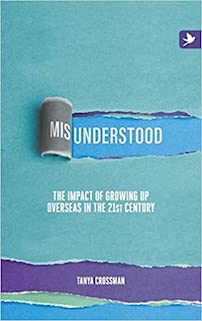Misunderstood
- Approximate Time Commitment: 10 minutes
Are you past the fun and now into the challenges of parenting third culture children? Understanding the life of a Third Culture Kid can be difficult. This excerpt is one element from the Grow2Serve online course Parenting Third Culture Kids. This course is for parents who have lived and ministered in a culture new and unfamiliar and who are committed to fully placing themselves into God’s hands for the sake of effective cross-cultural Gospel ministry. If you are currently engaged in cross-cultural ministry and are committed to living and serving well as a family in your context, this would be a good course for you.
Parenting Third Culture Kids will afford you the opportunity to explore some interesting information regarding the development of your parenting knowledge, perspectives, and skills while living and serving cross-culturally. But, more importantly, it also will connect you with fellow learners who are in a similar life stage.
For more information about the PTCK course and to register, visit here: www.grow2serve.com/ptck
Resource Description
Misunderstood
Read this short excerpt from the beginning of the chapter “The Inner Lives of TCKs” in Tanya Crossman’s book Misunderstood.
Read the excerpt and begin to think about healthy ways you can be a guide to your child exploring his or her culture-prompted feelings.
Many of the common threads that connect TCKs stem from ways in which they cope with frequent change, and the journey to create personal identity in the midst of transition. These traits are logical reactions to the pressures of circumstances in which TCKs find themselves. While they may sound like personality characteristics, they are instead reactions to, and coping strategies for, international living and constant transition.
Childhood experiences cause TCKs to internalize certain beliefs about the world. Actions prompted by these deep- held beliefs may not be clearly connected to underlying feelings. Adults can easily misinterpret a TCK’s behavior, not understanding the emotional trigger prompting it. This then contributes to a TCK’s feeling of being misunderstood.
This chapter is not a cheat sheet to explain how every TCK ticks; rather it is a window into how experiences may have influenced an individual, and therefore how they may feel, and how to better understand and serve them. The specific feelings and strategies described will not be found in every TCK, and when they are evident may not be deliberate.
Ideas for how to help TCKs grow into healthy and happy adults are not a one-size-fits-all approach, but hints that may help when judiciously applied to unique individuals. Some ideas will be most helpful to parents, others to any adult who spends time with TCKs. Some can be helpful for TCKs themselves, especially those already living independently, or to those who know and love them.
The goal is to give you insights that lead to questions and greater understanding – to give you ideas of what might be affecting TCKs you know, and questions you might ask to understand them better. Many TCKs find it difficult to articulate the things described in this section. Learning about the things hidden in the hearts of many TCKs can help you approach these topics with specific TCKs – opening lines of communication, giving them permission to agree or disagree, and to start sharing their own experiences.
If while reading this section you think ah, so that’s what’s wrong with them, you have missed the point entirely. If, however, you think wow, I never realized how that experience might affect a young person, you are right on target.
Excerpt from Crossman, Tanya. Misunderstood: The impact of growing up overseas in the 21st century (Kindle Locations 3197-3216). Summertime Publishing. Kindle Edition.
A key step parents need to take is away from viewing and interpreting the struggles of their children as something broken that needs to be fixed. A better approach is to understand these struggles as opportunities to develop perspective on life and the world. As a parent, you can make the decision to change the script in your head.
|
Liability |
Benefit |
|
seeing self as a global nomad (wanderer) |
broader concept of home (a spiritual perspective?) |
|
questioning relationship to “passport nation” |
global patriotism (or multiple patriotism) |
|
isolation/loneliness – feeling “different” (always being a outlier) |
ability to be a “cultural chameleon” |
|
experience of loss |
empathy for those who have experienced lost |
|
exposure/experience of trauma |
identification with the realities of the majority of people |
|
frequent change |
adaptability in a world with accelerating rates of change |
|
|
|
Using the contrasting phrases in this table, create some questions or discussion starters that may be helpful for exploring with your child the connection between the two items that both have their roots in the same life experience.
Only logged in customers who have purchased this product may leave a review.



Reviews
There are no reviews yet.